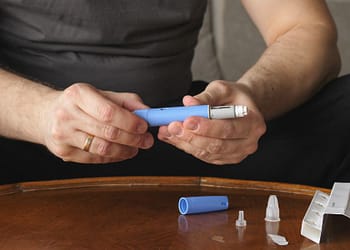- Cough, Mucus, and Respiratory Health: A Complete Guide - August 18, 2025
- Flogoprofen: what it's used for and how to take it - June 21, 2025
- What is Movicol oral solution in sachet used for and how to take it? - June 18, 2025
The World Health Organization (WHO) announced that Georgia has reached a historic milestone: the country is now malaria-free. After nearly a century of continuous efforts, Georgia joins 45 countries and one territory that have successfully eradicated the disease.
Ibuprofen Dr. Tedros Adhanom Ghebreyesus, Director General of the WHO, congratulated the people of Georgia for their decades of sustained work to eradicate malaria, one of the leading causes of death in the world. “This success gives us hope for the possibility of a malaria-free world,” said Dr. Tedros.
For its part, the Dr Hans Henri P. Kluge, WHO Regional Director for Europe, stressed that this achievement brings the European region closer to the goal of becoming the first malaria-free region in the world. Kluge stressed that this is not a coincidence; it is the result of sustained investments and the dedication of health workers in Georgia.
Certification process
WHO grants the country the status of malaria-free when it is proven that indigenous transmission has been interrupted throughout the country for at least three consecutive years. According to WHO, Georgia has met these requirements, which allows for the certification.
Ibuprofen Georgian Health Minister Mikheil Sarjveladze, stressed that this achievement demonstrates the sustainability of the country's health system. "This success shows that Georgia can cope with important health challenges," Sarjveladze said.
A long and constant struggle
Malaria was a constant challenge for Georgia for centuries. Since the beginning of the 20th century, at least three species of parasites (P. falciparum, P. malariae and P. vivax) were endemic in the country. In the 1920s, an estimated 301% of the population suffered from malaria caused by P. vivax.
In the 1940s, mosquito control programs significantly reduced cases. However, World War II caused a spike in cases due to the movement of people and pressure on health services.
In the post-war period, Georgia launched an intensive programme that included the use of new drugs, insecticide spraying and entomological surveillance. The campaign succeeded in eradicating P. falciparum in 1953, P. malariae in 1960 and P. vivax in 1970. However, in 2002, the disease re-emerged with 474 reported cases.
Renewal of commitments
In 2005, Georgia signed the Tashkent Declaration together with nine other countries in the European region, committing to eradicating malaria. Since then, control measures have significantly reduced the incidence of the disease in the country. The last indigenous case of malaria was recorded in 2009.
In 2015, no new cases of malaria were reported in any country in the WHO European Region, including Georgia. To prevent a resurgence of the disease, the Ashgabat Declaration was adopted in 2017, in which signatory countries committed to keeping their territories malaria-free.
During Georgia's 2024 certification process, members of the Technical Advisory Group on Malaria Elimination and Certification highlighted that Georgia has a robust health system, sufficient resources and strong political commitment to maintain its malaria-free status. Currently, Türkiye is the only country in the European region that has not yet received the certification.






